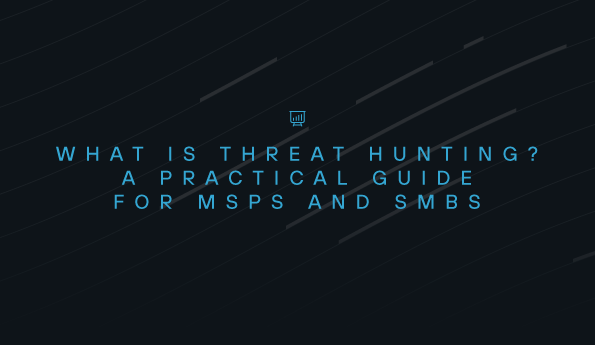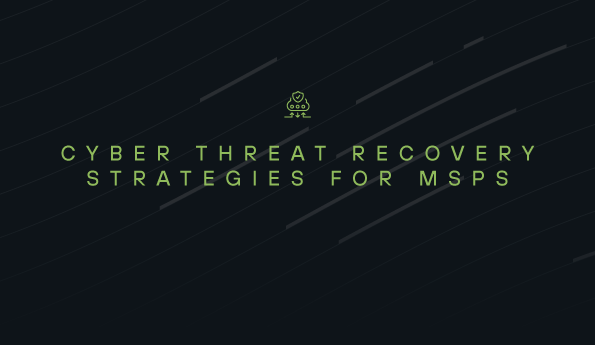How Texas SB 2610 Positions MSPs as Strategic Risk Advisors


Texas just gave MSPs a powerful opportunity to become trusted strategic advisors to their clients. Senate Bill 2610, effective September 1, 2025, creates legal protections for businesses with proper cybersecurity programs—and positions MSPs as the essential partners who help clients understand and capture these benefits.
Understanding the New Law
Texas SB 2610 introduces cybersecurity safe harbor protections for businesses with fewer than 250 employees. When clients implement qualifying cybersecurity programs before a breach occurs, they gain complete protection from exemplary (punitive) damages in civil lawsuits.
This represents a fundamental shift from punishment-based cybersecurity regulation to incentive-based protection. For the first time, Texas law rewards proactive cybersecurity investments with concrete legal benefits.
The requirements scale by business size:
- Under 20 employees: Password policies and cybersecurity training
- 20-99 employees: CIS Controls Implementation Group 1
- 100-249 employees: Full recognized frameworks like NIST Cybersecurity Framework 2.0
What This Means for Your Clients
Your clients now face a clear choice: implement qualifying cybersecurity programs and gain legal protection, or remain exposed to potentially devastating punitive damages that can multiply actual breach costs by significant factors.
The business impact is immediate:
- Financial Protection: Exemplary damages often exceed actual damages by substantial multiples. A qualifying cybersecurity program could save clients hundreds of thousands or millions of dollars in a major breach scenario.
- Competitive Advantage: Clients can demonstrate to customers and partners that their cybersecurity meets state-recognized standards, potentially winning business from competitors who haven't achieved compliance.
- Operational Benefits: Implementing recognized frameworks typically reduces downtime, improves productivity, and prevents disruptive cyber incidents that affect daily operations.
- Insurance Value: Many cyber liability insurers offer premium discounts for businesses with qualifying cybersecurity programs.
The risks of inaction are equally clear:
- Full Legal Exposure: Non-compliant clients remain vulnerable to the complete range of civil liability, including exemplary damages.
- Existing Penalties Apply: Current penalties of $2,000-$50,000 per violation for notification failures remain in effect.
- Reputational Risk: Customers and partners increasingly expect businesses to demonstrate proactive cybersecurity measures.
Strategic Implementation Approaches
As a trusted advisor, you can help clients understand their options and develop implementation strategies that match their business needs and risk tolerance.
For Micro Business Clients (Under 20 Employees)
These clients need practical, cost-effective solutions that don't require dedicated IT resources. Focus on foundational security measures that provide immediate protection and legal compliance.
Key advisory topics:
- Password management and multi-factor authentication implementation
- Employee training programs that reduce human error risks
- Basic data protection protocols that prevent common breach scenarios
- Simple incident response procedures that minimize damage
For Small Business Clients (20-99 Employees)
CIS Implementation Group 1 provides these clients with proven security controls that deliver both compliance and operational value. Help them understand how these investments protect their business beyond just legal requirements.
Strategic discussion areas:
- Asset inventory and management systems that improve operational efficiency
- Vulnerability management programs that prevent costly disruptions
- Access controls that protect sensitive business information
- Security monitoring that provides early warning of potential issue
For Medium Business Clients (100-249 Employees)
These clients can choose from multiple recognized frameworks, allowing you to help them select the approach that best fits their industry, existing compliance obligations, and business objectives.
Advisory opportunities:
- Framework assessment and selection based on business needs
- Integration with existing compliance requirements (e.g,. HIPAA, PCI DSS)
- Strategic security architecture that supports business growth
- Comprehensive risk management programs
Building Trust Through Education
Position yourself as the advisor who helps clients understand both the immediate compliance requirements and the broader business value of proper cybersecurity implementation.
Here are a few educational approaches that build trust:
- Risk Assessment Conversations: Help clients understand their current exposure and the specific protections available through compliance.
- Financial Impact Analysis: Show clients how cybersecurity investments provide both operational benefits and legal protection.
- Implementation Planning: Develop realistic timelines and budgets that align with business priorities and resources.
- Ongoing Partnership: Position yourself as the long-term advisor who helps clients maintain compliance as frameworks evolve and business needs change.
Creating Natural Service Opportunities
When you approach conversations as a strategic advisor focused on client protection, service opportunities emerge naturally from business needs rather than vendor pushes:
- Compliance Assessment Services: Evaluate current cybersecurity posture against SB 2610 requirements and identify specific gaps that need attention.
- Implementation Support: Help clients deploy the right combination of policies, technologies, and processes to achieve and maintain compliance.
- Ongoing Compliance Management: Provide regular monitoring, reporting, and framework updates to ensure continued protection.
- Incident Response Planning: Develop procedures that protect both compliance status and business operations during security events.
Timeline and Client Communication
With September 1,2025, approaching, clients need to understand both the urgency and the opportunity that SB 2610 represents.
Frame conversations around business protection:
- "This law provides unprecedented legal protection for proactive cybersecurity investments"
- "Compliance protects against future legal exposure while improving daily operations"
- "This tiered approach ensures requirements match your business size and capabilities"
Help clients see the bigger picture:
- Cybersecurity is shifting from a cost center to business enablement investment
- Legal protections reward good security practices
- Early compliance provides competitive advantages
The Strategic Advisor Advantage
MSPs who position themselves as strategic risk advisors rather than technology vendors build deeper client relationships and create opportunities for premium engagements.
Your clients need someone they trust to help them navigate these new requirements and capture the available protections. By focusing on their business needs first and positioning services as solutions to their challenges, you build the foundation for long-term advisory relationships.
Texas SB 2610 provides the framework for these conversations. Use it to demonstrate your value as a strategic partner who helps clients protect and grow their businesses through smart cybersecurity investments.
The Start of Something More
Texas SB 2610 isn't happening in isolation. Just weeks after its passage, Texas enacted SB 1188, mandating that electronic health records be stored within the US and implementing strict AI disclosure requirements for healthcare. The law carries penalties up to $250,000 per violation.
This rapid succession reveals the new regulatory reality: states are moving beyond one-size-fits-all cybersecurity laws toward industry-specific requirements that combine data protection, AI governance, and location restrictions.
What this means for MSPs: Your clients need compliance strategies that can adapt to evolving regulations, not just react to individual laws. Healthcare clients now face both cybersecurity safe harbors and specialized health data rules. Other industries can expect to see similar dual-track laws that provide both a carrot and stick, like safe harbors and regulatory fines.
Position yourself as the advisor who helps clients build adaptive frameworks rather than scrambling to meet each new requirement as it emerges. The question isn't whether more laws like these are coming; it's whether your clients will be ready when they arrive.
See Todyl in Action
Learn how you can protect what you built.
Stay on the Cutting Edge of Security
Subscribe to our newsletter to get our latest insights.



